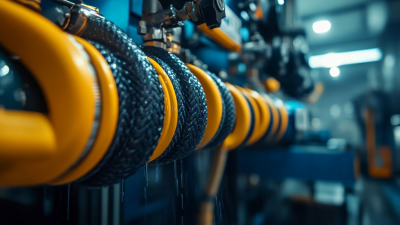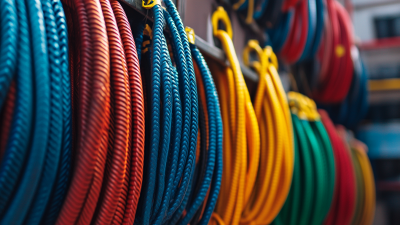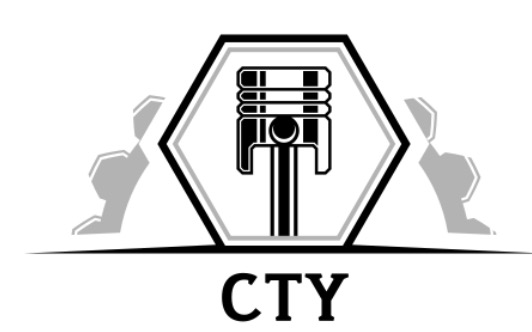- Home Page
- Company Profile
-
Our Products
- Hydraulic Pumps
- Hydraulic Solenoid Valves
- Conventional Valves
- Proportional Valves
- Safety Valves
- Mobile Control Valves
- Hydraulic Motor
- Cylinders and Servo Cylinders
- Hydraulic Filters
- Hoses and Fittings
- Gates Hydraulic Hose
- MP Filters Filters
- Dowty Gear Pumps
- Polyhydron Valves
- Manifold Blocks
- Walvoil
- Spica
- Hand Pumps
- ATOS Hydraulic Components
- Blog

“Unveiling the Best Gates Hoses: Industry Standards and Global Sourcing Insights for Buyers”
In the world of industrial and commercial applications, the reliability of equipment is paramount, and Gates Hoses have established themselves as a benchmark in quality and performance. Understanding the nuances of Gates Hoses is crucial for buyers who wish to make informed purchasing decisions in an increasingly competitive market. This blog will delve into common problems faced by buyers when selecting Gates Hoses, outlining the disparities in quality and compliance with industry standards. By shedding light on global sourcing insights, we aim to equip potential buyers with the knowledge needed to navigate the complexities of the hose industry effectively. Through this exploration, our goal is to unveil not only the strengths of Gates Hoses but also the challenges that come with sourcing these essential components, ensuring that every purchase contributes to operational reliability and efficiency.

Exploring Eco-Friendly Alternatives to Traditional Gates Hoses
As the demand for sustainable products rises, eco-friendly alternatives to traditional Gates hoses are becoming increasingly popular among consumers and businesses alike. These innovative hoses are often made from recycled materials or bioplastics, significantly reducing the environmental impact compared to conventional rubber options. When selecting eco-friendly hoses, look for certifications that verify the materials used, ensuring that you are making a responsible choice for both your garden and the planet.
When considering eco-friendly alternatives, it's essential to understand the performance characteristics of the hoses. Many modern eco-friendly hoses are designed to be lightweight and flexible, making them easier to handle during use. Ensure that the hose you choose maintains durability and can withstand various weather conditions. Tips for maximizing the lifespan of your eco-friendly hoses include proper storage away from direct sunlight and avoiding kinks during use.
Additionally, if you're transitioning to eco-friendly hoses, consider your watering needs. Opt for hoses with built-in features that promote water conservation, such as drip irrigation capabilities or adjustable nozzles. These not only enhance efficiency but also help reduce water waste while maintaining a healthy outdoor space. Embracing eco-friendly alternatives does not mean sacrificing quality; rather, it is an opportunity to invest in products that benefit both your garden and the environment.
Innovative Materials Transforming the Gates Hose Industry
The Gates hose industry has experienced remarkable transformation through innovative materials that elevate performance and durability. Advances in polymer technology, such as thermoplastic elastomers (TPE) and high-performance rubber compounds, have led to hoses that withstand extreme temperatures, pressures, and chemical exposures. According to a recent report from the Industrial Hose Manufacturers Association (IHMA), the adoption of these modern materials has improved hose longevity by nearly 30%, significantly reducing replacement costs for industries reliant on high-performance hoses.
When sourcing hoses, consider the specific requirements of your application. Ensure that the materials used are suitable for the fluids being transported and the environmental conditions they will encounter. For instance, TPE hoses can be a better choice for applications involving high abrasion and flexing, while specialized rubber compounds provide superior resistance to chemicals.
Tip: Always check for industry certifications and standards compliance when selecting hoses. This ensures that the materials not only meet safety regulations but also perform reliably under expected operating conditions. Additionally, seeking guidance from suppliers who specialize in custom solutions can offer insights on the best materials for your unique requirements, ultimately enhancing operational efficiency.
Unveiling the Best Gates Hoses: Industry Standards and Global Sourcing Insights for Buyers
| Dimension | Material Type | Pressure Rating (psi) | Temperature Range (°F) | Application Area |
|---|---|---|---|---|
| 1" x 50' | Rubber | 3000 | -40 to 200 | Industrial |
| 3/4" x 100' | PVC | 2500 | -20 to 150 | Agricultural |
| 2" x 75' | Polyurethane | 4000 | -10 to 180 | Construction |
| 1/2" x 25' | Silicone | 1500 | -60 to 500 | Automotive |
Comparing Performance: Rubber vs. PVC Gates Hoses
When it comes to selecting garden hoses, the choice between rubber and PVC is crucial for ensuring optimal performance and longevity. Rubber hoses are renowned for their durability and ability to withstand extreme temperatures, making them ideal for various landscaping tasks. Their superior kink resistance and flexibility allow for easier handling, especially in larger gardens. Additionally, rubber hoses often feature enhanced abrasion resistance, which can prolong their lifespan in rugged environments.
On the other hand, PVC hoses are typically lighter and more affordable than their rubber counterparts, making them a popular choice for casual gardeners. While they may lack some of the strength and durability of rubber hoses, modern advancements in PVC technology have led to the development of kink-resistant options that perform admirably in everyday use. It's important for buyers to consider their specific needs and the environment in which the hose will be used, as both materials have distinct advantages that cater to different scenarios. Ultimately, understanding the performance characteristics of rubber and PVC hoses can guide you to make an informed decision for your gardening needs.
Evaluating Cost-Effective Options for Budget-Conscious Buyers
When it comes to selecting hoses from Gates, budget-conscious buyers often find themselves balancing quality and cost. Understanding the various options available on the market is crucial for making informed decisions that don’t compromise on performance. Leading manufacturers like Gates adhere to high industry standards, ensuring that even their more affordable hoses can compete in durability and reliability. By researching the latest models and their specifications, buyers can pinpoint the cost-effective solutions that meet their requirements without overspending.
Global sourcing insights also play a vital role in this evaluation process. Many buyers may not realize that hoses produced in different regions might offer varying levels of value for money. For example, manufacturing practices in certain countries could lead to lower production costs, which can translate to savings for buyers. Exploring these international options while remaining aware of quality benchmarks will empower buyers to make better choices.
By evaluating both the price and the performance, budget-conscious consumers can uncover some of the best Gates hoses that fit their financial plans while still delivering on quality and efficiency.

The Future of Gates Hoses: Trends in Sustainable Sourcing Practices
Sustainable sourcing practices in the hose industry are evolving rapidly as environmental considerations gain prominence. According to a recent report by the Sustainable Packaging Coalition, about 66% of consumers prefer products that are environmentally friendly. This shift is prompting manufacturers, including Gates, to refine their sourcing strategies and materials, focusing on reducing their carbon footprint and enhancing recyclable content. The incorporation of eco-friendly materials not only benefits the planet but also appeals to a growing demographic of environmentally conscious buyers.
Tip: When selecting hoses, look for certifications such as ISO 14001, which indicates a commitment to environmentally responsible practices. This can assure you that the company prioritizes sustainable development.
Additionally, innovative recycling processes are being explored within the industry. Gates is at the forefront, implementing methods that repurpose used hoses into new products, thus minimizing waste. According to the Environmental Protection Agency, recycling can save over 70% of energy compared to producing new products from raw materials. This not only supports the circular economy but also positions manufacturers as leaders in sustainability.
Tip: Consider hoses made from recycled materials or those that can be easily recycled at the end of their life cycle. This choice contributes positively to reducing overall industrial waste.

Related Posts
-

Challenges with Selecting the Right Gates Hoses for Your Operations
-

Unlocking Quality: The Definitive Handbook for Sourcing Gates Hoses Suppliers Worldwide
-

5 Top Benefits of Gates Hydraulic Systems for Enhanced Efficiency in Industrial Applications
-

5 Ways Best Cartridge Valves Improve Your Industrial Efficiency
-

Exploring the Future of Best Industrial Valves in Industry 2025 Technology Trends
-

Maximize Your Budget with 7 After Sales Service Tips for Best Industrial Valves
Developed and Managed byInfocom Network Private Limited.

 Send Inquiry
Send Inquiry
